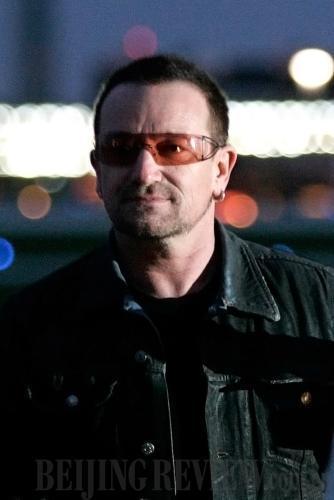|

I spent March with a delegation of activists, entrepreneurs and policy wonks roaming West, Southern and East Africa trying very hard to listen - always hard for a big-mouthed Irishman. With duct tape over my gob, I was able to pick up some interesting melody lines everywhere from palace to pavement ...
Despite the almost deafening roar of excitement about Africa's hosting of soccer's World Cup this summer, we managed to hear a surprising thing. Harmony ... flowing from two sides that in the past have often been discordant: Africa's emerging entrepreneurial class and its civil-society activists.
It's no secret that lefty campaigners can be cranky about business elites. And the suspicion is mutual. Worldwide, civil society as a rule sees business as, well, a little uncivil. Business tends to see activists as, well, a little too active. But in Africa, at least from what I've just seen, this is starting to change. The energy of these opposing forces coming together is filling offices, boardrooms and bars. The reason is that both these groups - the private sector and civil society - see poor governance as the biggest obstacle they face. So they are working together on redefining the rules of the African game.
Entrepreneurs know that even a good relationship with a bad government stymies foreign investment; civil society knows a resource-rich country can have more rather than fewer problems, unless corruption is tackled.
This joining of forces is being driven by some luminous personalities, few of whom are known in America; all of whom ought to be. Let me introduce you to a few of the catalysts:
John Githongo, Kenya's famous whistleblower, has had to leave his country in a hurry a couple of times; he was hired by his government to clean things up and then did his job too well. He's now started a group called Inuka, teaming up the urban poor with business leaders, creating inter-ethnic community alliances to fight poverty and keep watch on dodgy local governments. He is the kind of leader who gives many Kenyans hope for the future, despite the shakiness of their coalition government.
Sharing a table with Githongo and me one night in Nairobi was DJ Rowbow, a Mike Tyson doppelgänger. His station, Ghetto Radio, was a voice of reason when the volcano of ethnic tension was exploding in Kenya in 2008. While some were encouraging the people of Kibera, one of the largest slums in Africa, to go on the rampage, this scary-looking man decoded the disinformation and played peacemaker/interlocutor. On the station's playlist is Bob Marley and a kind of fizzy homespun reggae music that's part the Clash, part Marvin Gaye. The only untruthful thing he said all evening was that he liked U2. For my part, I might have overplayed the Jay-Z and Beyoncé card. "They are friends of mine," I explained to him, eh, a lot.
|